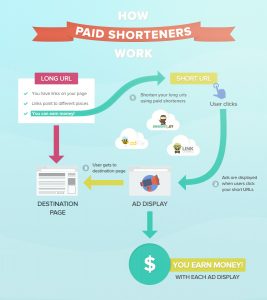When it comes to a potential employee’s skill set and personality, entrepreneurs can be forgiven for putting “extrovert” and “people person” high on their list. There aren’t many job descriptions that call for a quiet and retiring introverts, and in many sectors – particularly retail, service and hospitality – companies often design interview processes to determine who are the most outgoing and gregarious of their applicants. But are business leaders missing a trick when they overlook less assertive candidates, and how can they get the best out of their introvert employees?
The Introvert Personality
We tend to think of introverts as shy, reticent people, who are generally a little more thoughtful and sensitive than their extroverted counterparts. Other characterizations state that introverts aren’t necessarily shy – in fact, they can remarkably socially skilled – but are exhausted by socialising and need extended periods alone, whereas extroverts thrive in company.
In the world of business, the mantra often goes that it’s the extroverts who perform best. They shine in networking events, handle meetings with ease, make customers feel fabulous and bring enough charm and confidence to inspire every potential investor to propel them to success. And this is meant to apply at every rung of the ladder, from the shopfloor to the boardroom.
Alongside this mantra is the fact that it is often more difficult for introverts to perform well in interviews. Explaining the many ways in which they are the best candidate for a role (while leaving a good impression of their personality) is something that’s bound to come more easily to those who are enlivened by social pressure and fully at ease with themselves.
A shyer candidate may not be able to communicate their skills in such a compelling way under the performative conditions of an interview, even if they are more qualified and (once they feel more comfortable) actually a better people person and team player. They may also be more thoughtful and less likely to bluff their way through the interview process – giving answers that don’t quite fit the tick-box generics which many entrepreneurs come to rely on when screening for candidates.
This underestimation of an introvert’s competence and skill can easily extend into the workplace, and quieter employees can lack confidence in their own abilities. Take a meeting as an example, where a more outgoing colleague has hit upon an idea that sounds great, but is fundamentally flawed.
The introvert may be fully aware that the idea simply won’t work, but gives up on fighting their point because others don’t naturally defer to them, and they want to avoid an extended conflict. And of course, as it’s extremely bad form to say “I told you so”, the fact that they initially objected will probably be lost on most involved.
Bringing Out The Best In Introverts
Yet despite all this, there are many advantages to the introvert personality, and they can actually perform incredibly well socially, even if it takes them a little more effort. Our general inclination (especially in the corporate world) to those who are immediately outgoing could be twisting working practices in ways which further disadvantage introverts, and conceal a huge wealth of untapped talent and ideas.
For instance, you may have a culture in meetings where people hash out ideas on the spot and have to sell them, unformed and untested, to the group. Naturally, the people who can argue their point best and quickly get others on side will stand out in this scenario, while more thoughtful and quietly delivered ideas get lost. An introvert may perform far better if they were allowed to hone a concept alone and given time – without offputting interruption – to informally present it to others, who can then discuss its relative advantages and disadvantages.
So what are the other business practices which will make introverts shine? Here are a few ideas:
- Adapt Your Interview Process
Unless the job role specifically calls for someone who will be expected to sell and pitch in high-pressure situations, you may want to adapt your interview process in order to help introverts perform at their best. For example, you could add a more informal stage where you go out for a coffee and have a one-to-one chat with a potential candidate, allowing them to become comfortable in your company and feel less on display.
You might also do away with a “panel-style” interview, or adapt it. If you currently get job applicants to sit across a table with the panel all grouped on one side, you could create a less intimidating scenario where everyone is scattered casually around on sofas. Rather than always trying to get them to think on their feet, (how many times in business do we truly need to rely on snap judgment?) you could send ahead a couple of questions that they can consider in advance.
Cut down on small talk – introverts can stumble if they feel like they have nothing to say, even if you intend to put them at ease – and give them the time to answer your questions without cutting them off, which can be disorientating. Their thoughtfulness doesn’t necessarily mean they lack confidence; it may simply reflect their desire to properly communicate their ideas and to muse over your question.
Repay the compliment by actively listening to their reply, and respond in kind with questions that naturally arise, rather than completely sticking to a script. This creates a more natural and revealing conversation and helps to stop introverts from worrying whether they got the last question “right” when you speed off to a new one.
Lastly, it’s important to actually think about the content of their conversation, rather than their delivery. Of course, you’ll want a candidate who appears affable, but try to avoid being bowled over by charm alone.
- Actions Within the Workplace
Initially, it’s important not to limit someone just because you perceive them to be shy or introverted. You may be surprised by their willingness and skill in conducting presentations or meeting new clients, especially as their confidence within the role grows. While it would be unwise to attempt to force them into these tasks, make sure they know you are open to the idea of them branching out, and assured of their ability.
If appropriate, you could get employees to complete a little “about me” manual to be circulated about the team. For example, someone may say “I wear headphones when I have to focus, so it’s best to email me then”, “I love anything techy, feel free to bring your questions to me” or “talk to me anytime, I’m friendlier than I look!”. This may not always be necessary, but it can be a quick way to get everyone acquainted with each individual’s quirks and working practices.
Give everyone plenty of notice for meetings, so introverts have time to order their thoughts and prepare to be socially on display, and provide a structure. Introverts can get lost in a free-for-all, so conduct the meeting in a manner where everyone gets their chance to speak, to ensure all voices are heard. If you have a particularly shy but otherwise extremely competent member of staff, you may even make a point of chatting to them after the meeting, to hear the thoughts they felt too uncomfortable to express to the group. If they realise you value their opinion, they may become more assertive.
Expanding on this, regular one-to-ones can be really helpful. Introverts often value thoughtful and deep conversation, and perform much better individually than within a group. By giving them the space to shine on their own, you could find the person who is otherwise overlooked is one of the most talented members of your team.
Business & Finance Articles on Business 2 Community(63)




